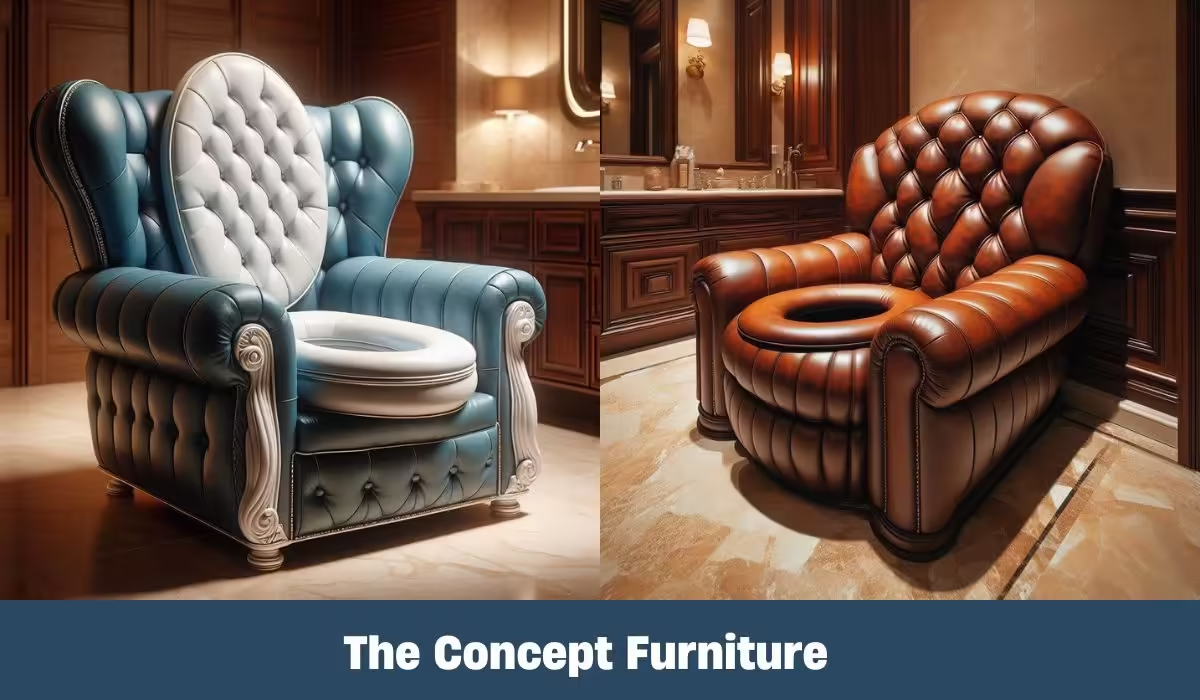The topic of toilets may not seem like the most glamorous subject to delve into, yet understanding the different types of toilets—including armchair toilets—is essential for enhancing comfort, accessibility, and functionality in our daily lives. Armchair toilets have emerged as a vital solution for individuals with mobility challenges, offering unique benefits that traditional toilets may not provide. This comprehensive guide will explore everything you need to know about armchair toilets—from their definition and history to their design features and future trends.
Introduction to Armchair Toilets
Understanding what an armchair toilet is entails recognizing its purpose and how it fits into the broader spectrum of bathroom fixtures. While conventional toilets serve a universal function, armchair toilets are specially designed to cater to those who may struggle with the physical demands of using a standard toilet.
With the aging population and rising awareness around accessibility issues, the demand for armchair toilets has surged. These toilets combine the functionality of a regular toilet with the comfort of a chair, making them ideal for elderly individuals or those recovering from surgery or illness. As we navigate through this guide, we will examine the various types of armchair toilets available, their design features, and the numerous advantages they offer.
Definition and Overview
An armchair toilet is essentially a commode that merges a toilet seat with the structure of an armchair. This hybrid design allows for greater comfort and stability when sitting down or standing up, especially for users with limited mobility.
Armchair toilets can come equipped with additional features such as armrests, padded seats, and even height adjustability to enhance user experience. Some models are stationary, while others are portable, giving users options depending on their specific needs and living situations.
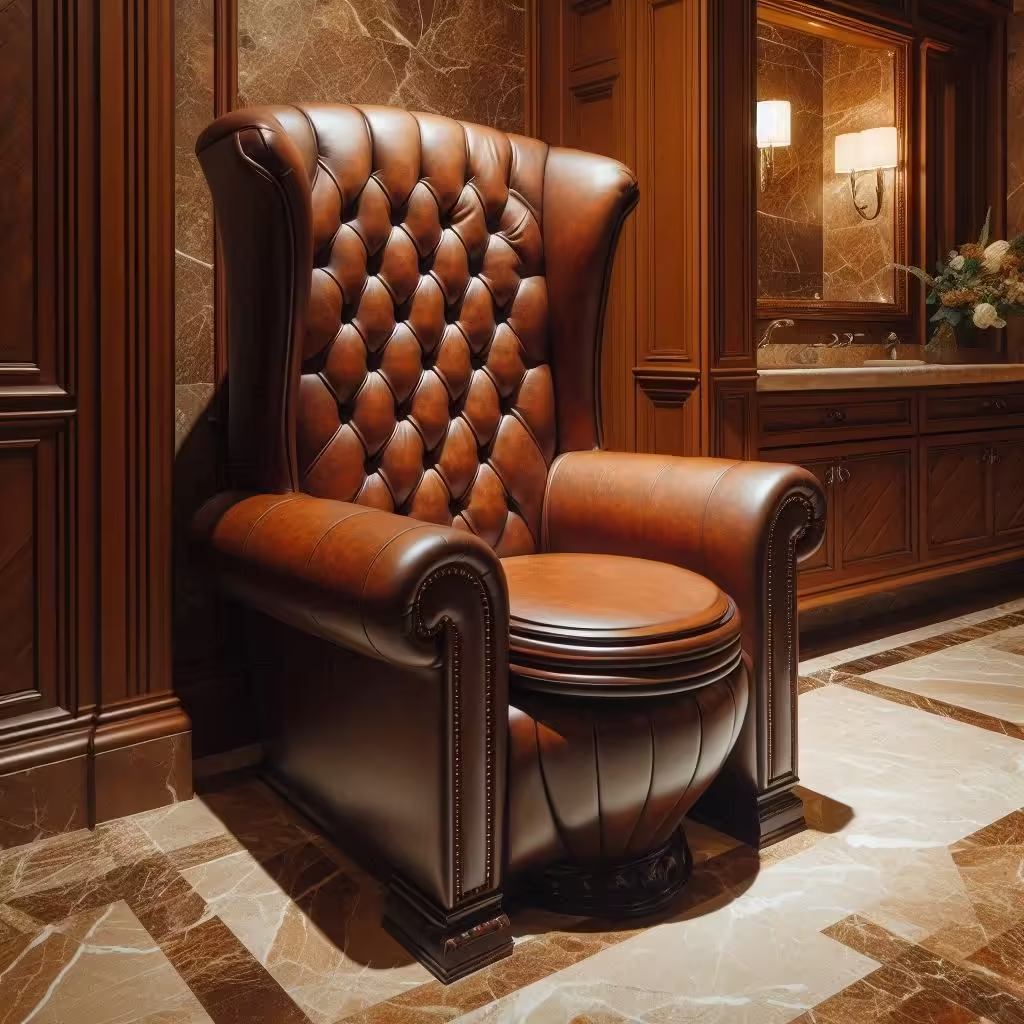
Historically, the concept of combining seating and sanitation dates back centuries, but the modern iteration of the armchair toilet has evolved significantly to accommodate contemporary design and functionality standards.
Historical Context of Armchair Toilets
To trace the roots of armchair toilets, we must look back at the evolution of sanitation practices over the years. Traditional toilets have undergone many transformations, particularly in terms of hygiene, design, and accessibility.
In earlier times, people relied on primitive forms of toilets such as pits or wooden latrines. The invention of indoor plumbing in the 19th century revolutionized sanitation but often overlooked the complexities surrounding user comfort and accessibility.
The emergence of armchair toilets came as a response to these oversights. As society began to recognize the importance of catering to individuals with disabilities or reduced mobility, manufacturers started designing toilets that provided greater support and comfort. The modern armchair toilet represents not only an advancement in technology but also a reflection of changing societal attitudes towards inclusivity and accessibility.
Types of Armchair Toilets
As the market for armchair toilets continues to grow, various types have emerged, each designed to meet different user needs. Understanding these types is crucial for selecting the right toilet for yourself or a loved one.
Standard Armchair Toilets
Standard armchair toilets are typically designed to resemble traditional toilets but incorporate the comfortable features of an armchair. These toilets often include armrests and wider seats to make transfers easier for users.
The seat height can be adjustable, allowing users to find the optimal position for comfort and safety. Standard armchair toilets are generally intended for home use, providing a stable and supportive option for those who may need assistance with mobility.
Portable Armchair Toilets
For individuals who travel frequently or require a toilet option outside of the home, portable armchair toilets serve as an invaluable resource. These toilets are lightweight and often foldable, making them easy to transport and set up in various locations.
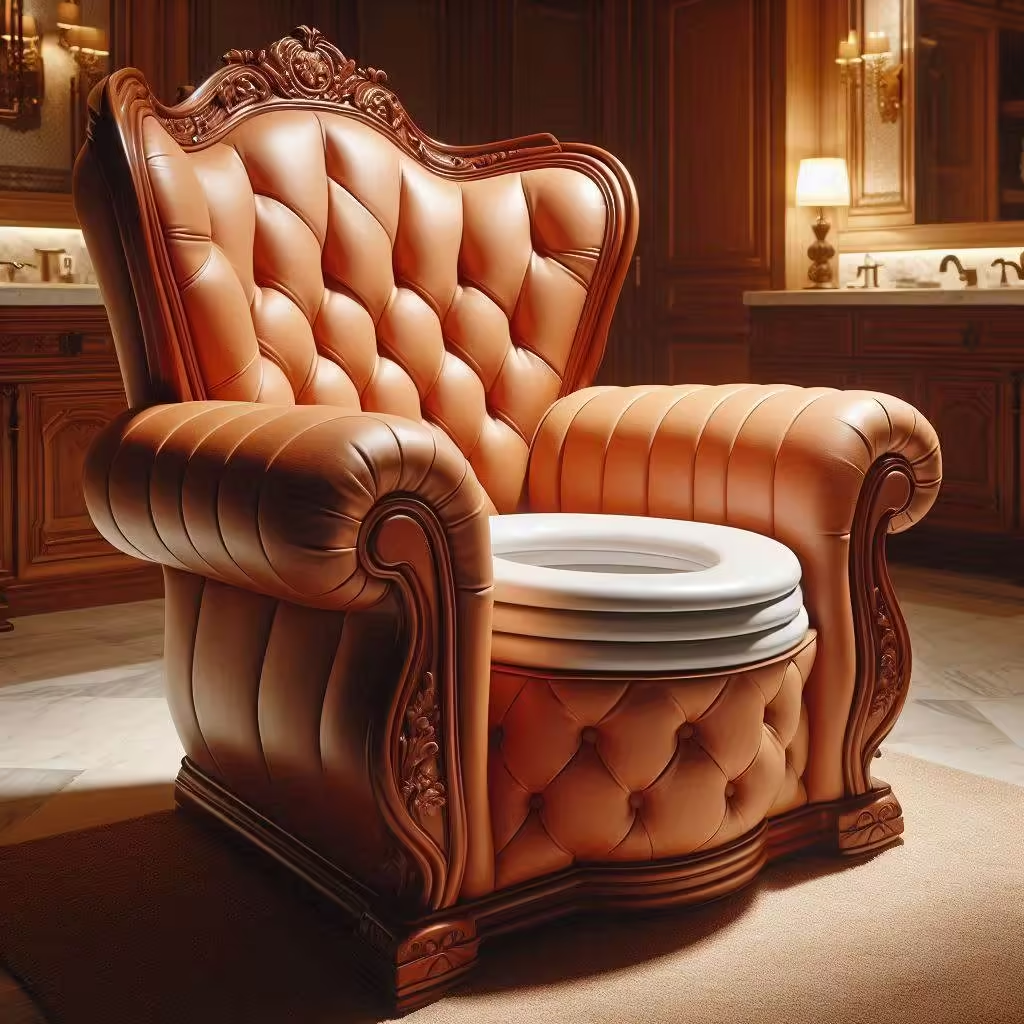
Portable options can either be used outdoors or placed inside vehicles during road trips. They generally feature a smaller footprint than standard models but retain critical ergonomic designs to ensure comfort and usability wherever you go.
Luxury Armchair Toilets
The luxury segment of armchair toilets offers high-end features, such as heated seats, built-in bidets, and customizable settings. These toilets are designed not just for functionality but also for aesthetics, seamlessly fitting into beautifully designed bathrooms.
Luxury models often prioritize user experience by incorporating advanced technology such as remote controls, self-cleaning functions, and water-saving features. Investing in a luxury armchair toilet can enhance overall bathroom experiences, blending comfort, convenience, and style.
Design Features of Armchair Toilets
When evaluating armchair toilets, design features play a significant role in usability and comfort. Below, we delve into some key aspects to consider.
Ergonomics and Comfort
The design of an armchair toilet should prioritize ergonomics to help users maintain a natural posture while seated. Many armchair toilets come with contoured seats that reduce strain on joints, particularly for users with arthritis or other musculoskeletal conditions.
Additionally, the presence of armrests creates a much-needed support structure for users attempting to stand up after sitting, thus minimizing the risk of falls. The overall height of the toilet plays a crucial role too; well-designed models often have adjustable heights to accommodate varying levels of mobility.
Materials Used in Construction
The materials selected for armchair toilets greatly impact both durability and comfort. Most armchair toilets are made from high-quality plastics or ceramics that withstand wear and tear while maintaining a sleek appearance.
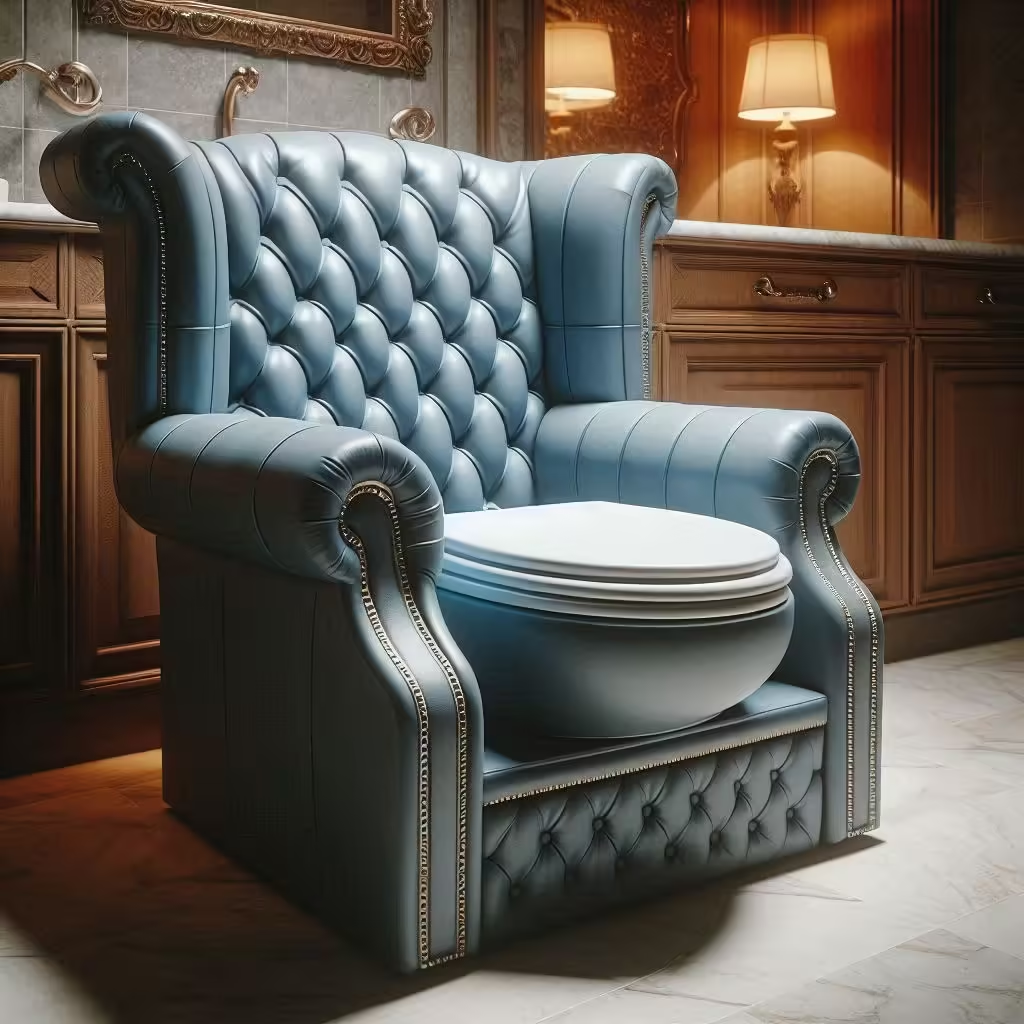
Comfortable padding on the seat can be made from moisture-resistant foam, which ensures a pleasant sitting experience even for extended periods. Manufacturers increasingly focus on eco-friendly materials, aligning with growing sustainability concerns.
Aesthetic Considerations
While functionality is essential, the aesthetic appeal of armchair toilets cannot be overlooked. Many consumers now seek products that enhance their home’s interior design rather than detract from it.
Today’s armchair toilets are available in various styles, colors, and finishes, allowing homeowners to choose a model that complements their existing bathroom décor. This focus on aesthetics contributes to normalizing the use of armchair toilets and destigmatizes the need for specialized bathroom fixtures.
Benefits of Using Armchair Toilets
The advantages of using armchair toilets extend beyond mere comfort; they address critical issues surrounding accessibility, versatility, and improved quality of life for users.
Accessibility for Individuals with Mobility Challenges
One of the most significant benefits of armchair toilets is their heightened accessibility for users with mobility challenges. Whether due to age, injury, or disability, many individuals find it challenging to use traditional toilets.
Armchair toilets provide a stable and secure platform, ensuring that users can sit and stand without undue stress on their bodies. This feature contributes to increased independence, enabling individuals to manage personal care without relying on caregivers for every aspect of the process.
Enhanced Comfort Compared to Traditional Toilets
Compared to traditional toilets, armchair toilets often offer a superior level of comfort. The wider and cushioned seating reduces discomfort, allowing users to spend more time without strain.
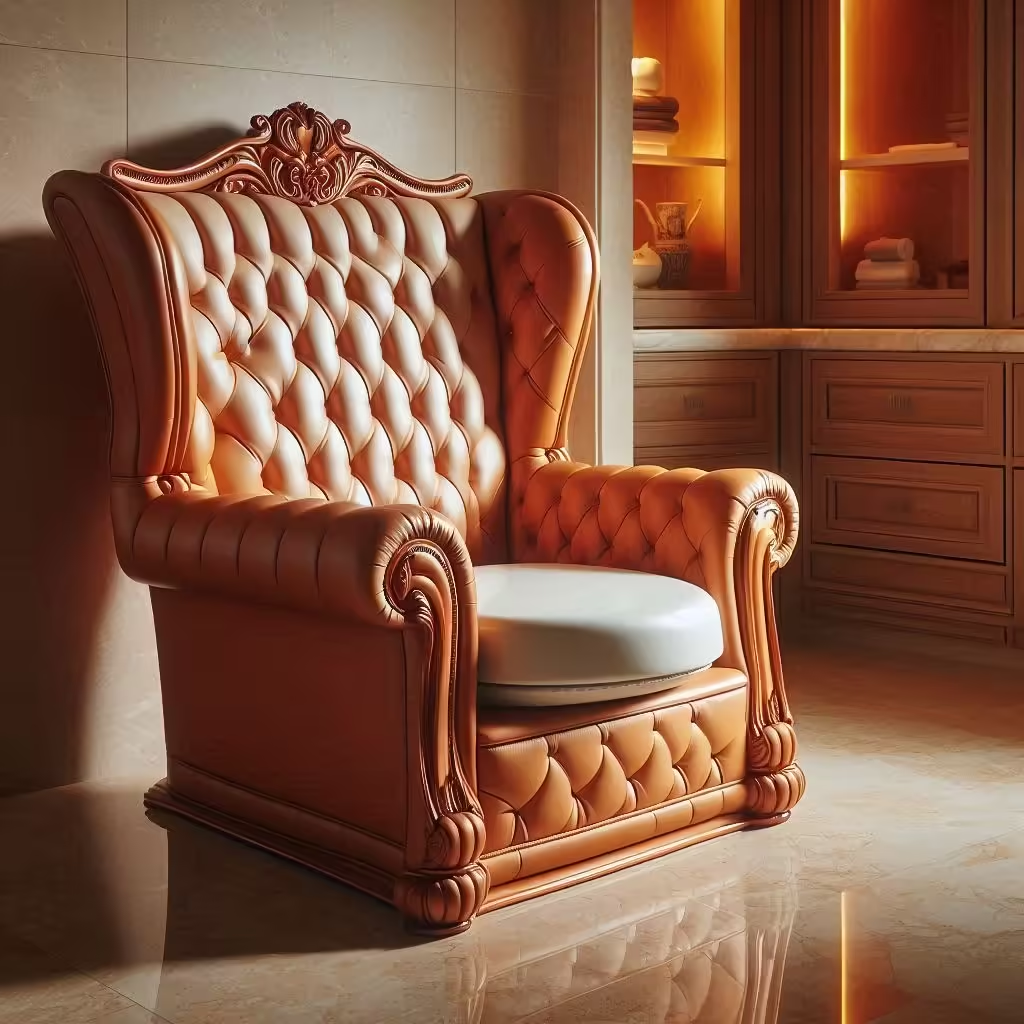
Moreover, added features such as heated seats, adjustable heights, and integrated bidets enhance the overall comfort experience. Users often report feeling less anxious and more relaxed when using a well-designed armchair toilet.
Versatility in Various Settings
From residential homes to hospitals and care facilities, armchair toilets prove to be versatile solutions across multiple environments. Their adaptability allows them to cater to diverse user needs, whether situated in a family bathroom, a nursing facility, or even temporary living situations.
Furthermore, the portable armchair toilets have expanded usage possibilities, making them a practical choice for outdoor activities, camping trips, or emergency scenarios. Their multifunctionality makes them invaluable assets in promoting dignity and comfort for all users.
Installation and Maintenance of Armchair Toilets
Proper installation and maintenance of armchair toilets are crucial to ensure they function optimally and remain safe for use. Here’s what you need to know.
Installation Process Overview
Installing an armchair toilet typically involves several steps. First, ensure that the toilet is positioned in a suitable location with adequate space around it for easy access.
Once you have determined the ideal placement, follow the manufacturer’s guidelines to secure the toilet firmly in place. If the armchair toilet includes adjustable components, calibrate them according to the user’s specific needs. Finally, test the toilet for stability to confirm it can support the user’s weight safely.
Regular Maintenance Tips
Regular maintenance is important for the longevity of your armchair toilet. Start by cleaning the toilet regularly using non-abrasive cleaners to prevent buildup of dirt and bacteria.
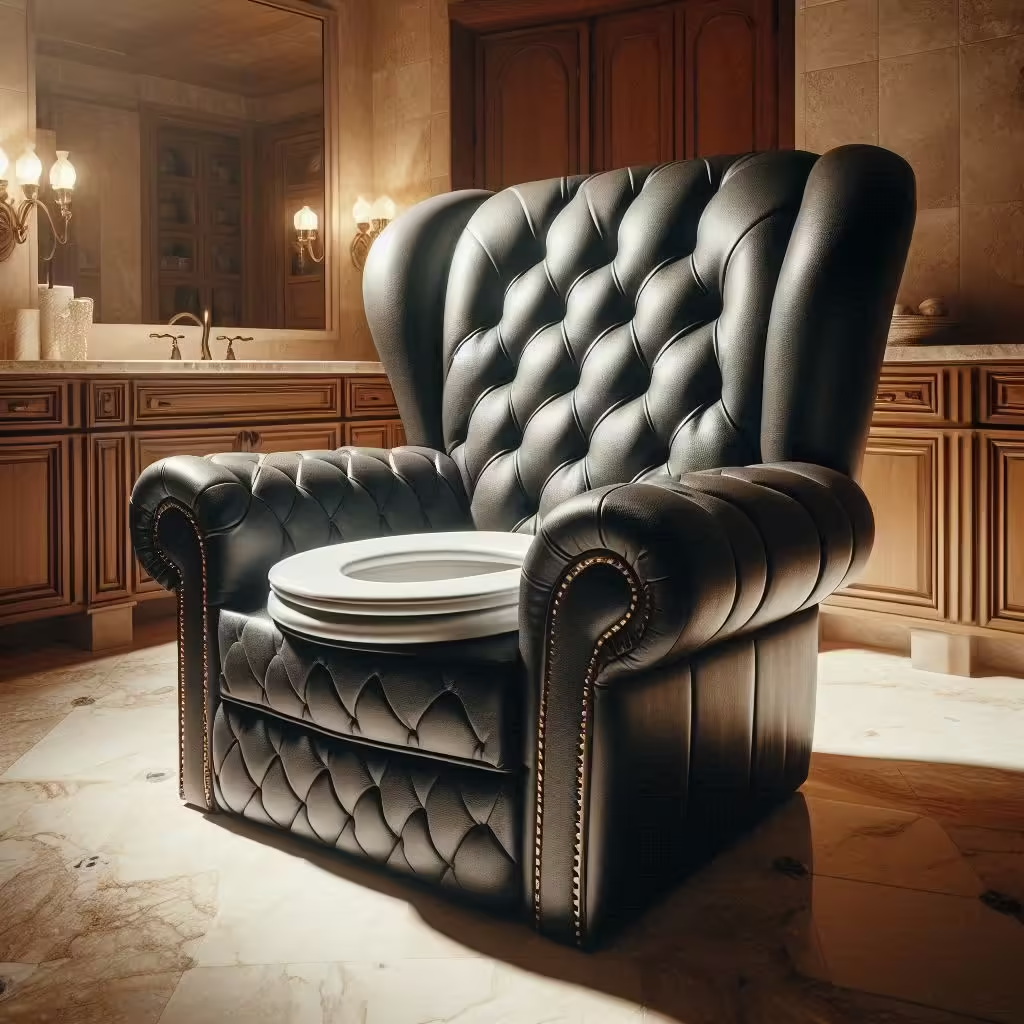
Check for signs of wear and tear, particularly on padded areas and mechanical components if applicable. Tighten any loose fittings and replace parts (like seat cushions) as necessary to maintain safety and comfort.
Troubleshooting Common Issues
Common issues with armchair toilets might include wobbling, difficulty adjusting height, or malfunctioning features. To troubleshoot, first, check that all screws are tight and the toilet is level on the floor.
If height adjustments are not functioning, inspect the adjustment mechanism to see if it requires lubrication or replacement. Many manufacturers provide customer service and detailed manuals for addressing these common problems effectively.
Cost Considerations
Investing in an armchair toilet can involve various costs, influenced by multiple factors. Understanding the financial aspects can help you make informed decisions.
Price Range of Armchair Toilets
The price range for armchair toilets varies widely based on factors such as brand reputation, included features, and design complexity. Standard models tend to be more budget-friendly, while luxury options may include advanced technology that drives up the cost.
When considering an armchair toilet purchase, it’s essential to weigh the upfront expenditure against the long-term value it offers in terms of comfort and accessibility.
Factors Influencing Cost
Several factors influence the cost of armchair toilets, including material quality, design complexity, brand, and whether additional features are included. Models with advanced technology (like smart features) typically command higher prices.
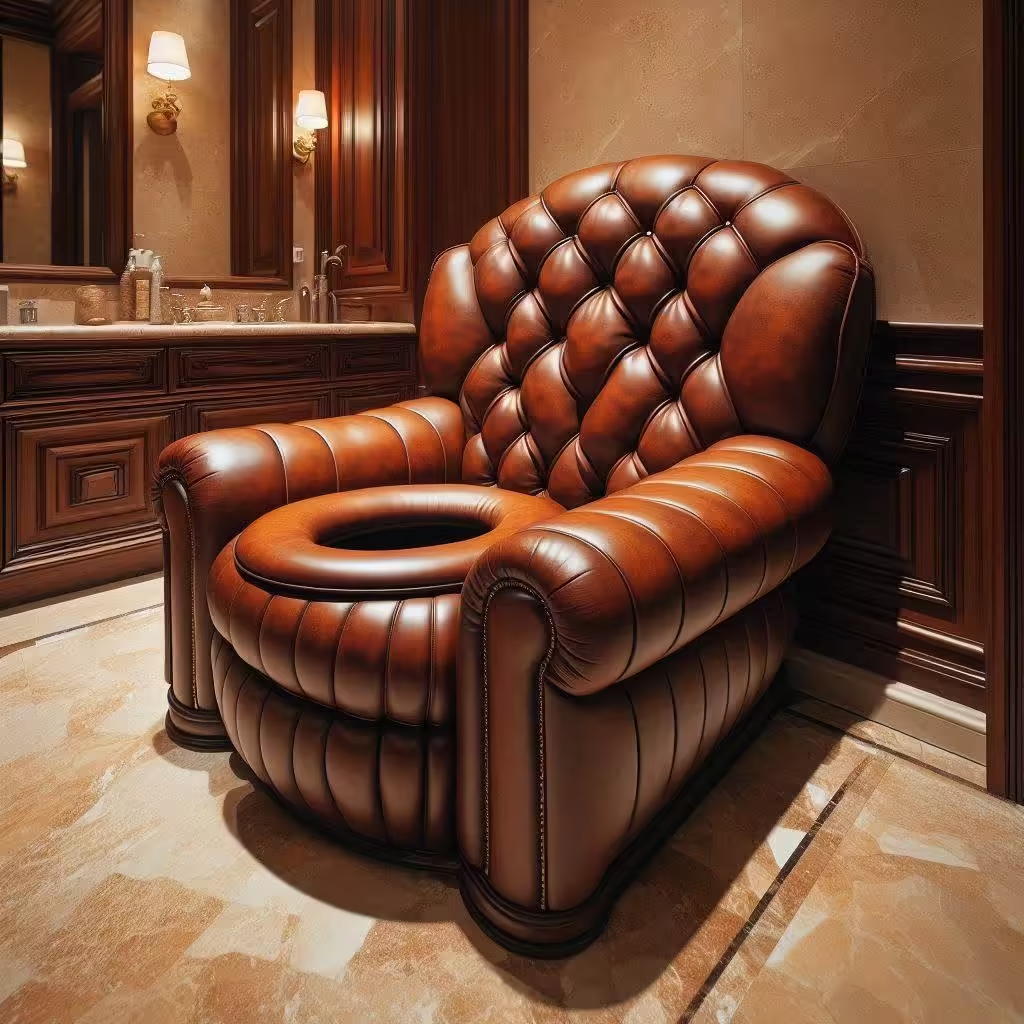
Consider also the potential costs for installation and maintenance. Hiring professionals for installation may add to initial expenses, but patience with DIY efforts could save costs.
Cost-Benefit Analysis
Conducting a cost-benefit analysis can clarify whether investing in an armchair toilet is worthwhile. Evaluate the potential improvements in comfort and quality of life against the financial outlay required.
Assess how an armchair toilet can address specific needs, such as reducing the risk of falls or fostering independence, further justifying the investment.
Environmental Impact
As we become increasingly mindful of our environmental footprint, examining the ecological effects of armchair toilets is essential.
Water Usage Comparison with Traditional Toilets
Many armchair toilets are designed with water efficiency in mind, often using less water than traditional toilets. Reduced water consumption can contribute to lower water bills and promote sustainable living.
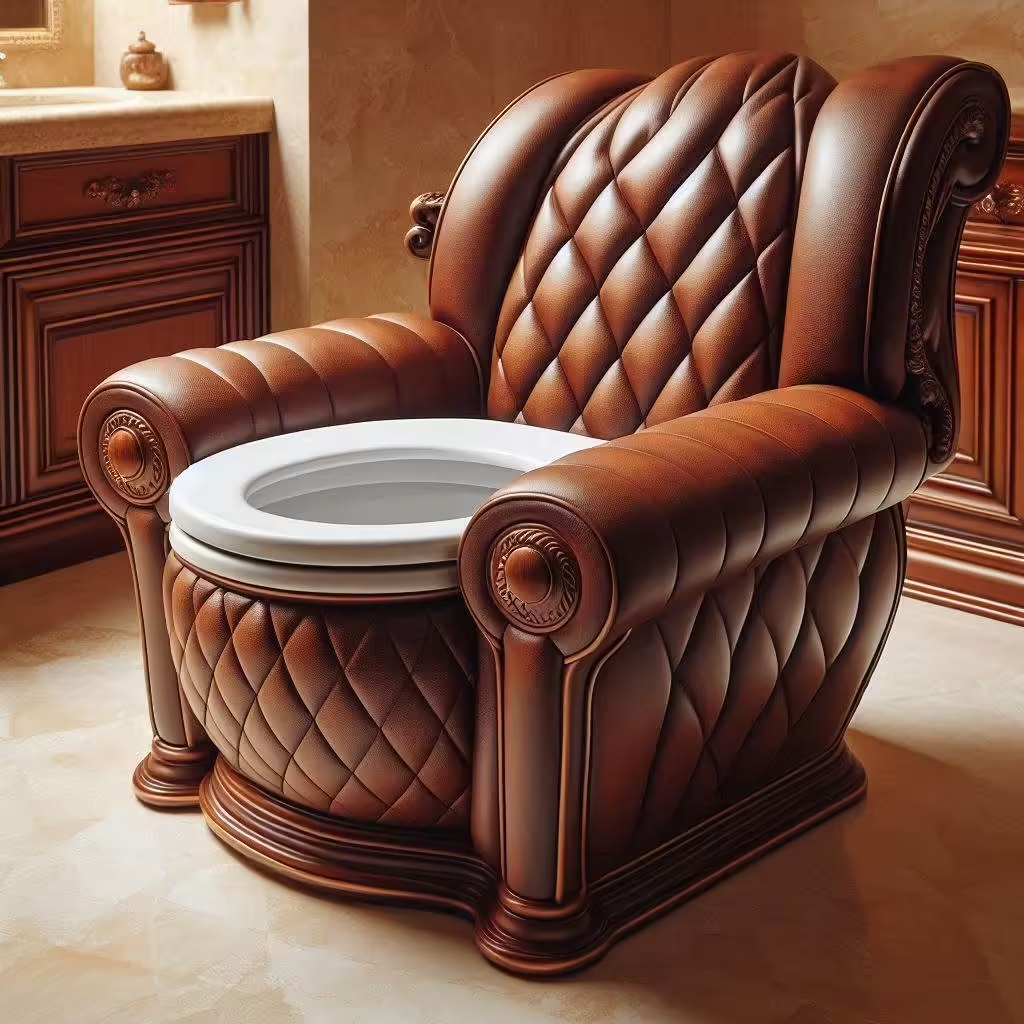
Some models also integrate dual-flush mechanisms, allowing users to choose between light and full flushes, further optimizing water usage.
Sustainability Practices in Manufacturing
As manufacturing practices evolve, many companies are adopting sustainability initiatives to minimize environmental impact. This effort includes sourcing materials responsibly, utilizing recyclable packaging, and integrating eco-friendly processes into production.
By choosing armchair toilets from manufacturers committed to sustainability, consumers can feel empowered to make environmentally responsible choices that align with their values.
Cultural Perspectives on Armchair Toilets
Cultural perceptions of sanitation methods vary globally, influencing how armchair toilets are received in different contexts.
Usage in Different Countries
Armchair toilets are embraced differently depending on cultural norms and accessibility standards. In countries with advanced healthcare systems, the acceptance of various toilet styles is prevalent, whereas regions with limited resources may rely on basic sanitation solutions.
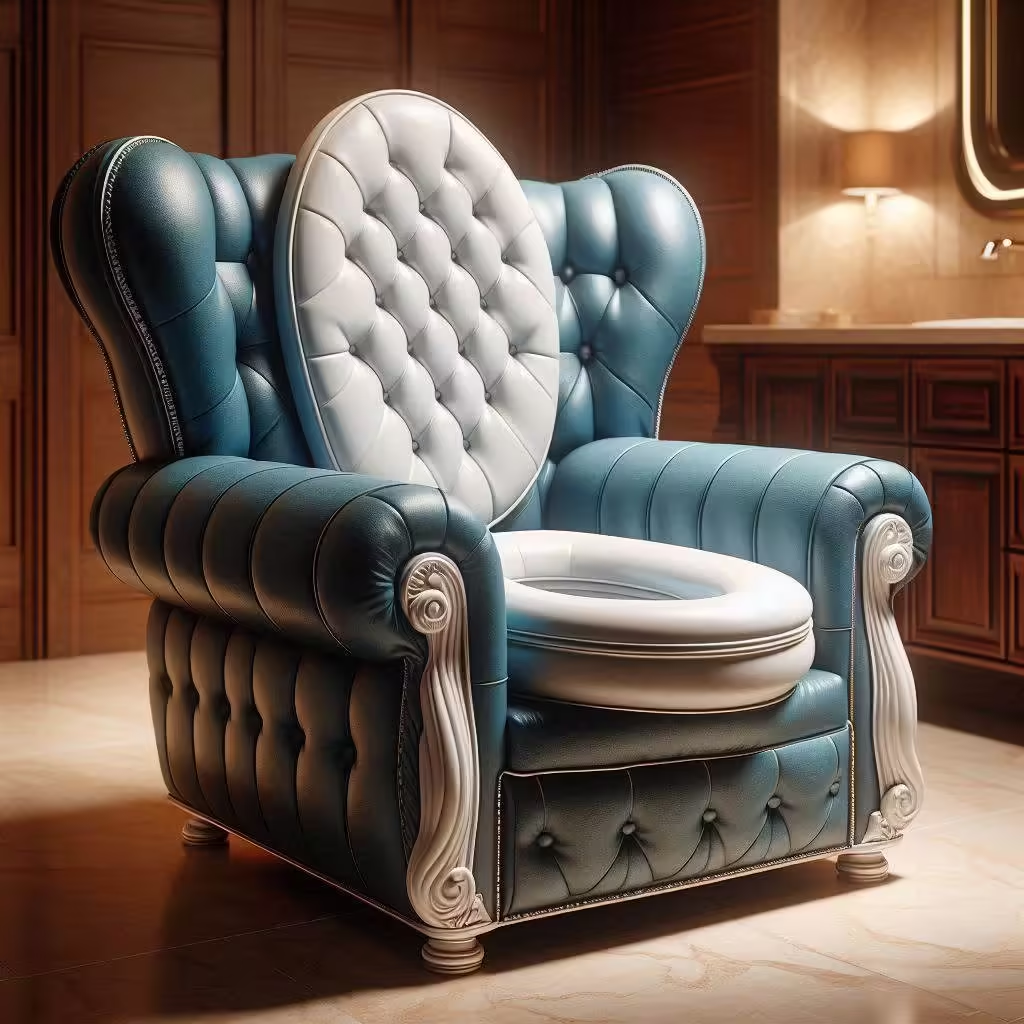
Understanding regional preferences can help manufacturers cater their designs and marketing strategies to better align with local needs.
Societal Attitudes and Acceptance
Societal attitudes toward specialized toilets, including armchair toilets, reflect broader views on disability and accessibility. In cultures where disabilities are stigmatized, the acceptance of armchair toilets may face challenges.
Conversely, in societies prioritizing inclusivity, armchair toilets gain prominence as symbols of progress and respect for individual needs, fostering wider acceptance among the general public.
Future Trends in Armchair Toilet Design
The landscape of armchair toilets is constantly evolving, with emerging trends driven by technological innovations and consumer expectations.
Technological Innovations
Technology is reshaping how we think about armchair toilets, introducing features aimed at enhancing user experience. Innovations such as sensor-activated flushing, self-cleaning mechanisms, and personalized settings are becoming more commonplace.
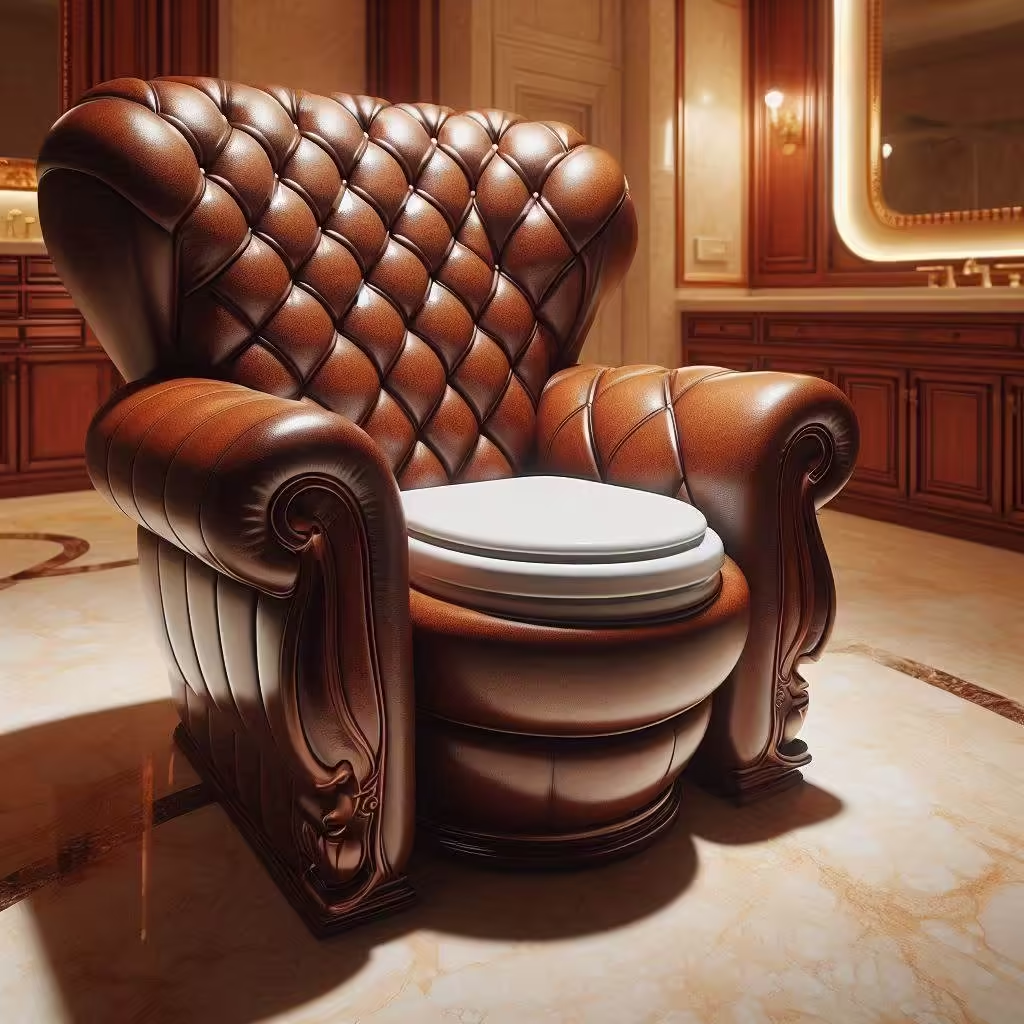
Future models may integrate AI-driven systems that adapt to individual user needs, providing customized comfort and hygiene solutions.
Integration with Smart Home Systems
The trend towards smart homes extends to bathroom fixtures, including armchair toilets. Integration with smart home systems allows users to control toilet functions via smartphones or voice commands.
This convergence of technology and design enhances user convenience and opens new avenues for personalization and efficiency in managing everyday tasks.
Conclusion
In summary, armchair toilets represent a significant advancement in achieving comfort, accessibility, and dignity within our sanitation practices. As we’ve explored, these specialized toilets are not merely functional fixtures; they embody a commitment to inclusivity and user-centered design.
Whether you’re considering an armchair toilet for yourself or a loved one, understanding their various types, benefits, and features is crucial for making an informed decision. The future of armchair toilets promises even more innovations as society continues to embrace technology and prioritize the needs of all individuals, regardless of their mobility challenges.


